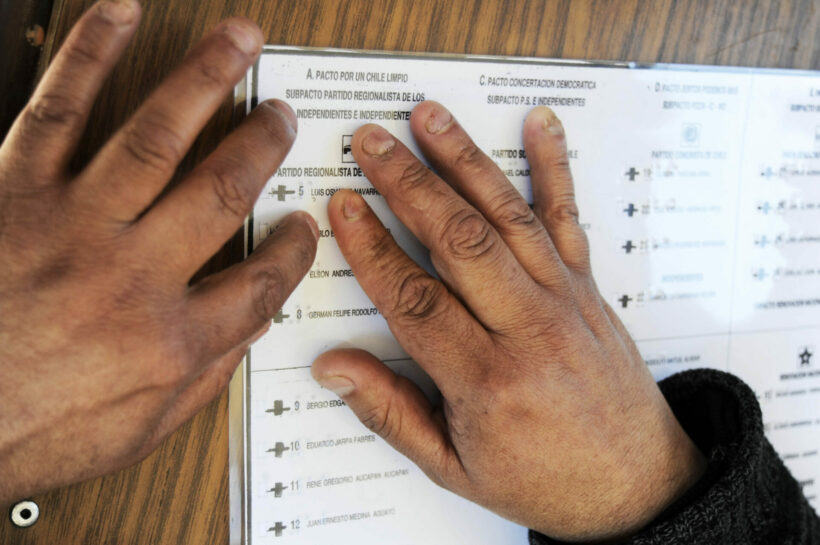One of the most important elements of the human being is his personal autonomy, to fend for himself, of course with the help of technology, because without it no human being could, for example, fly or sail, talk to someone who lives abroad, etc. Technology is at the service of the human being, but unfortunately it is not the same for everyone, this is the case for blind people, who are forced to go to vote and are not informed how to do this, in an adapted and accessible way. There is no adequate information for blind people, nor for the people around them, nor for the rest of society in a transparent way, although SERVEL continues to work for a more inclusive system in the electoral processes.
Given that we are at a time of “big offers” for the upcoming elections, it is pertinent to draw attention to an important issue: “The autonomy of blind people to vote” and here appears the technology to achieve this. How do blind people vote autonomously? Is there any possibility that about three million people with low vision and blind people in Chile can vote without the need to use the “companion”?
This will depend on ingenuity and political will to make it happen. At the moment in Chile the right to vote is compulsory.
And if we broaden the questions:
– How would someone who does not see make a choice of a candidate or list in a vote where all the lists and their candidates go together in a single vote?
– In the case of a blank vote, how would this person vote?
– And if he/she wanted to vote null, how would he/she make this option possible?
How would you exercise all your rights autonomously, without the need for an accompanying person?
It would be great fun if we could imagine having all the country’s politicians enter the polling station blindfolded, with an accompanying person telling them where they should mark their chosen option with a pencil. And then leave the polling station with the certainty that their escort had correctly indicated what this citizen wanted to vote for.
Another option would be to place signs in the polling station “in very clear handwriting” indicating where to vote, the number of the polling station where to cast the vote, and to tell this blindfolded person that there are all kinds of signs that clearly indicate how to do so.
What we don’t know is how this good person will guess where each sign is and guess what each one says, since the technology needed to inform someone with this difficulty is totally different and we dare say that it is totally ignored by the authorities who make the laws and also by the rest of society given their low education in these invisible issues.
There are about three million people obliged to vote, under penalty of paying a fine if they do not comply with the electoral law. If there is adapted voting, the information on how to exercise it is unknown. We will have to start demanding, in addition to the obligation to vote, the obligation to adapt the voting system accessible and autonomous, but adapted to all the needs of all citizens.
Equality must be given in all circumstances of life in society with equal rights and freedom to exercise them in a transparent and reliable way.
Audio exclusively for the visually impaired
Antonia Rodríguez Reyes and Hernán Reyes Matus
Member of the Convergencia – Chile






